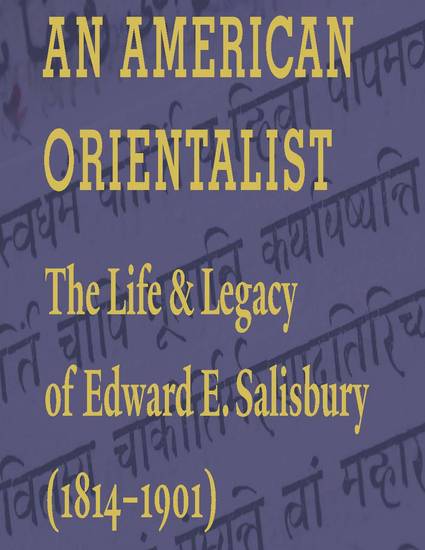
Presentation
An American Orientalist: The Life & Legacy of Edward E. Salisbury (1814-1901) (slides)
Yale University Library
(2016)
Abstract
In 1841 the Yale Corporation appointed alumnus Edward Elbridge Salisbury (class of 1832) as professor of Arabic and Sanskrit languages and literature, the first such position in the Americas.
This exhibit marks the 175th anniversary of his appointment. It introduces visitors to Salisbury’s scholarly development, his career at Yale and after, his benefactions (including two endowed chairs), and the growth of Yale collections of Islamic manuscripts after Salisbury’s death in 1901.
Salisbury was among the earliest members of the American Oriental Society (founded 1842), and energetically supported both the organization and its journal. His most famous student, William Dwight Whitney, became a prominent linguist and would succeed Salisbury as professor of Sanskrit.
After resigning his professorship in 1856, Salisbury continued to contribute to Yale through his service on both the Library Committee and the advisory council of the School of Fine Art. His 1870 donation of his “Oriental Library” made Yale’s the largest library for the study of Arabic, Sanskrit, and Persian in its day.
Materials on view come principally from Yale libraries (Manuscripts and Archives, the Beinecke Rare Book & Manuscript Library, and the general collections). Additional items come from the Yale University Art Gallery and the Near East School of Theology (Beirut). Many items are on display for the first time.
Keywords
- History of Orientalism,
- Yale University,
- Yale University Library,
- Islamic manuscripts,
- Orientalism
Disciplines
Publication Date
September 21, 2016
Location
New Haven, CT
Citation Information
Roberta L. Dougherty. "An American Orientalist: The Life & Legacy of Edward E. Salisbury (1814-1901) (slides)" Yale University Library (2016) Available at: http://works.bepress.com/bintalbalad/32/
